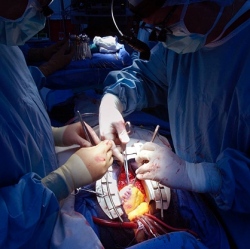
The actress revealed in May last year she had had the surgery, after being told she had an 87% chance of the disease because of a high-risk gene. The news encouraged women with genuine concerns about their family history to get advice, a study found. About 5% of breast cancers are thought to be hereditary.
"The Angelina Jolie effect has been long-lasting and global, and appears to have increased referrals to centres appropriately," said a team led by Prof Gareth Evans of the University of Manchester. The researchers looked at referrals to more than 20 genetic centres and clinics in the UK after the story hit the press in May 2013.
In June and July the number of GP referrals for genetic counselling and DNA tests for breast cancer mutations increased two and a half times compared with the same period in 2012. The study, published in the journal, Breast Cancer Research, found referrals remained at twice the previous year’s figure from August to October.
"Angelina Jolie stating she has a BRCA1 mutation and going on to have a risk-reducing mastectomy is likely to have had a bigger impact than other celebrity announcements, possibly due to her image as a glamorous and strong woman," said Prof Evans.
